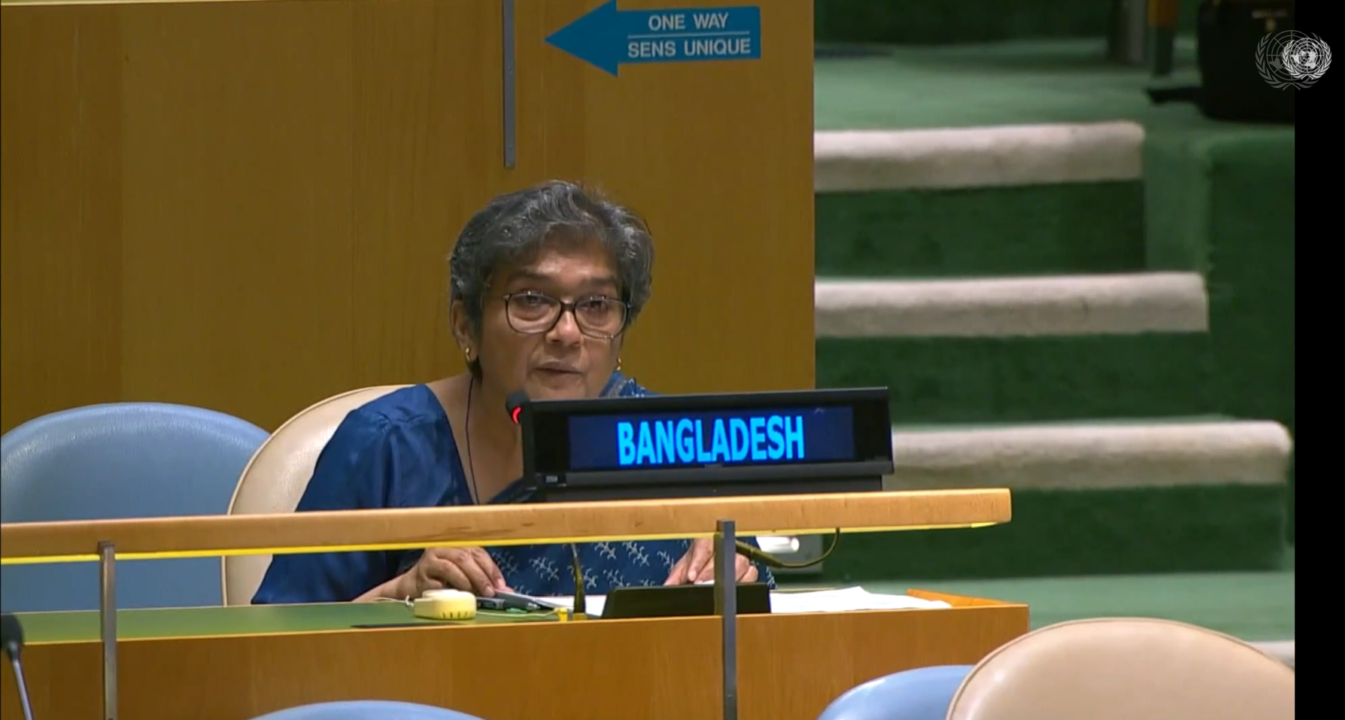I thank you, Madame Chair.
[And] I thank your delegation for organizing today’s meeting; and for keeping the Myanmar issue on the Council’s agenda.
The situation in Myanmar remains a matter of great concern. The lingering conflicts across the country; the violence, chaos and tension; and the targeting of minority groups in the country, have been particularly destabilizing; leading to cross-border displacements. Reports of a surge in Covid cases and gross mishandling of the crisis, is adding to the misery of the people, and spillover cases across borders. As an immediate neighbor, hosting over a million of the displaced Rohingya minorities, we are gravely concerned with these developments. Like everyone else we want to see political stability in Myanmar.
The current developments raise renewed fear of influx, and are creating tensions in the Rohingya camps in Bangladesh. The shift of focus and waning interest of the international community about the plights of the Rohingya is fueling frustration and resentment among them, especially as prospects of return appear remote. The prolonged presence of the Rohingyas in Cox’s Bazaar is also creating tensions in the host community.
The potential security ramifications of the protracted Rohingya crisis are real – both for Bangladesh as well as for the region. We have alerted the Council of those ramifications on multiple occasions, and have urged it to address the fundamental and deep-rooted problems in Myanmar, which are at the heart of the problems faced by the minorities like the Rohingyas; and as we are witnessing yet again, playing out against them in the current crisis. They are increasingly vulnerable in their own country.
Despite the many calls from various UN mechanisms and other stakeholders, the response from the Council has remained slow, inadequate and ineffective. And its failure to act is only exacerbating the crisis.
Let me highlight a few points on today’s agenda:
- The engagement of ASEAN in Myanmar including the conclusion of its 5 -point agreement is a welcome and encouraging development. However, we are yet to see any real impact of the agreement on the ground. ASEAN with its access and stake in Myanmar, is uniquely placed to play an important role in resolving the current crisis. We thank ASEAN for highlighting the Rohingya crisis in the outcome document. Resolving the Rohingya crisis is critically important for regional stability; and ASEAN can support urgent actions for the safe and sustainable return of the Rohingya to Myanmar and ensuring their reintegration in the Myanmar society.
- ASEAN’s role aside, the primary responsibility of addressing threats to international peace continues to remain with the Council. The Council must use all the tools at its disposal to bring an end to the ever-deteriorating crisis in Myanmar. We would also like to see the Council focus on addressing the root causes of Myanmar’s crisis including by improving the situation on the ground, and enabling safe and sustainable return of the Rohingya and other displaced people. Council members with influence over Myanmar also have an important role to play.
- The deeply entrenched culture of impunity that exists in Myanmar must be broken by holding the perpetrators accountable. To that end the Council needs to back all the ongoing accountability processes including those in the ICJ and ICC.
- Finally, we would like to urge the Council to hold regular open debates on Myanmar instead of confining such an important issue to closed or Arria formula meetings. The affected countries and other key stakeholders should be able to speak before the Council and reflect on its responses. Transparency in the Council’s work is critically important for building trust and sending the right message to the affected population and to those responsible for creating the crisis in Myanmar. We expect the Council to act on this situation before it becomes a bigger crisis impacting us all.
I thank you all.

